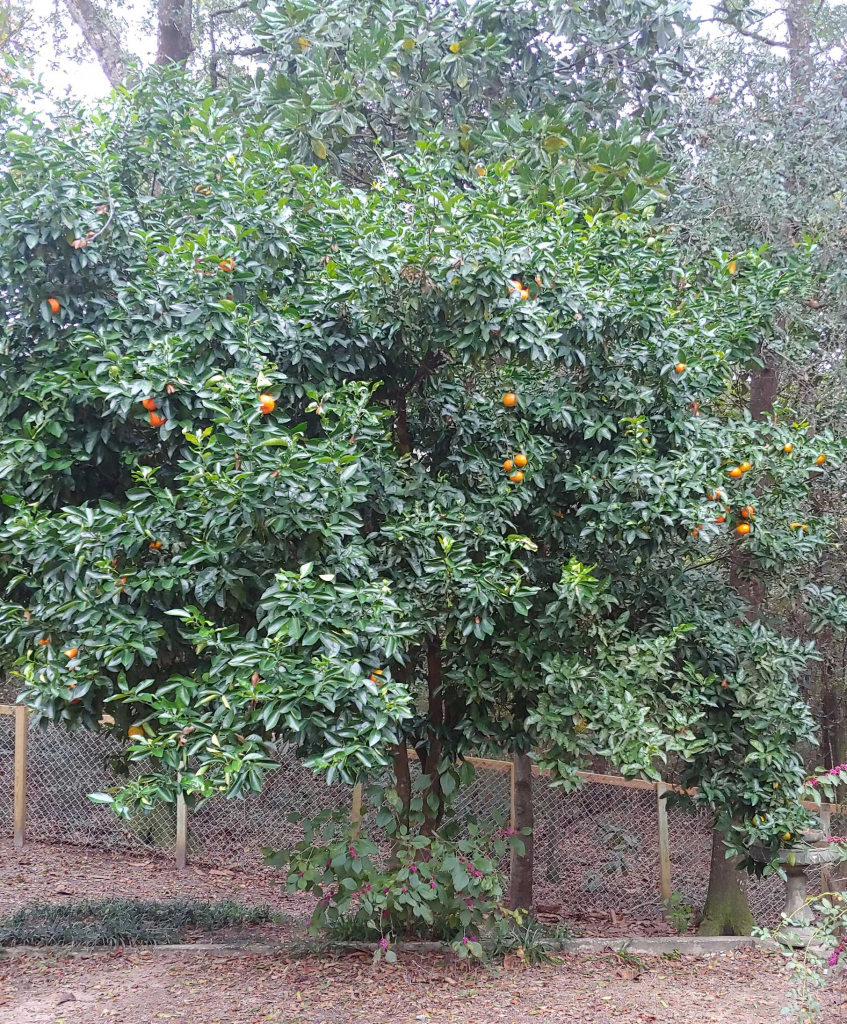From time to time we get questions from clients who are unsatisfied with the flavor of the fruit from their citrus trees. Usually the complaints are because of dry or fibrous fruit. This is usually due to irregular irrigation and/or excessive rains during fruit development. However, we sometimes get asked about fruit that is too sour. There are three common reasons why fruit may taste more sour than expected: 1) The fruit came from the rootstock portion of the tree; 2) The fruit wasn’t fully mature when picked; or 3) the tree is infected with Huanglongbing (HLB) a.k.a. citrus greening or yellow dragon disease.
Rootstock
The majority of citrus trees are grafted onto a rootstock. Grafting is the practice of conjoining a plant with desirable fruiting characteristics onto a plant with specific disease resistance, stress tolerance (such as cold tolerance), and/or growth characteristics (such as rooting depth characteristics or dwarfing characteristics). Citrus trees are usually true to seed, but the majority of trees available at nurseries and garden centers are grafted onto a completely different citrus species. Some of the commonly available rootstocks produce sweet fruit, but most produce sour or poor tasting fruit. Common citrus rootstocks include: Swingle orange; sour orange; and trifoliate orange. For a comprehensive list of citrus rootstocks, please visit the Florida Citrus Rootstock Selection Guide. A rootstock will still produce viable shoots, which can become dominant leaders on a tree. In the picture below, a sour orange rootstock is producing a portion of the fruit on the left hand side of this tangerine tree. The trunk coming from the sour orange rootstock has many more spines than the tangerine producing trunks.

A tangerine tree on a sour orange rootstock that is producing fruit on the left hand side of the tree. Photo Credit: Matt Lollar, University of Florida/IFAS Extension
Fruit Maturity
Florida grown citrus generally matures from the months of October through May depending on species and variety. Satsumas mature in October and taste best after nighttime temperatures drop into the 50s. Most tangerines are mature in late November and December. Oranges and grapefruit are mature December through April depending on variety. The interesting thing about citrus fruit is that they can be stored on the tree after becoming ripe. So when in doubt, harvest only a few fruit at a time to determine the maturity window for your particular tree. A table with Florida citrus ripeness dates can be found at this Florida Citrus Harvest Calendar.
Citrus Greening
Citrus Greening (HLB) is a plant disease caused by the bacterium Candidatus Liberibacter asiaticus, which is vectored by the Asian citrus psyllid. The disease causes the fruit to be misshapen and discolored. The fruit from infected trees does not ripen properly and rarely sweetens up. A list of publications about citrus greening can be found at the link Citrus Greening (Huanglongbing, HLB).
- Is a Limequat a Lime or a Kumquat? - December 26, 2025
- Gardening in the Panhandle LIVE! Program Summary: Pests of Florida Lawns and Landscape Plants - May 28, 2025
- Fun Facts About Ferns - April 30, 2025

